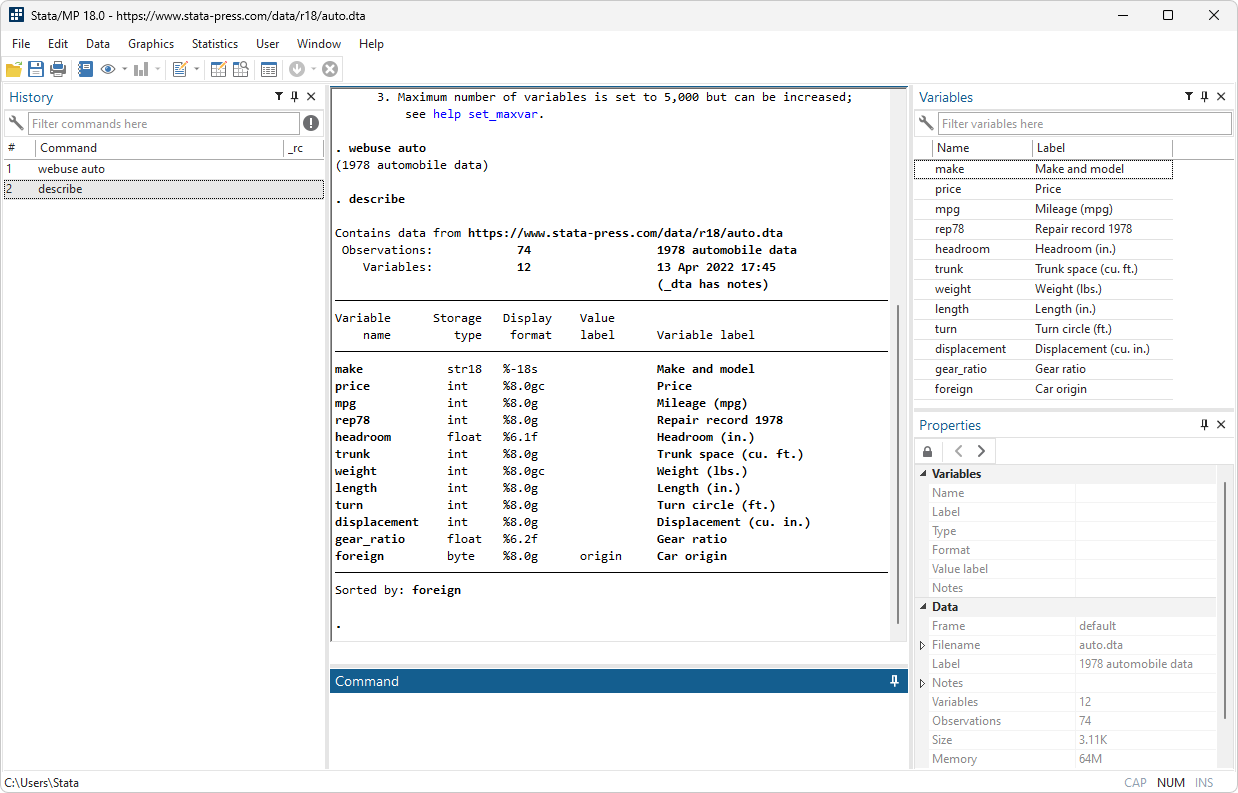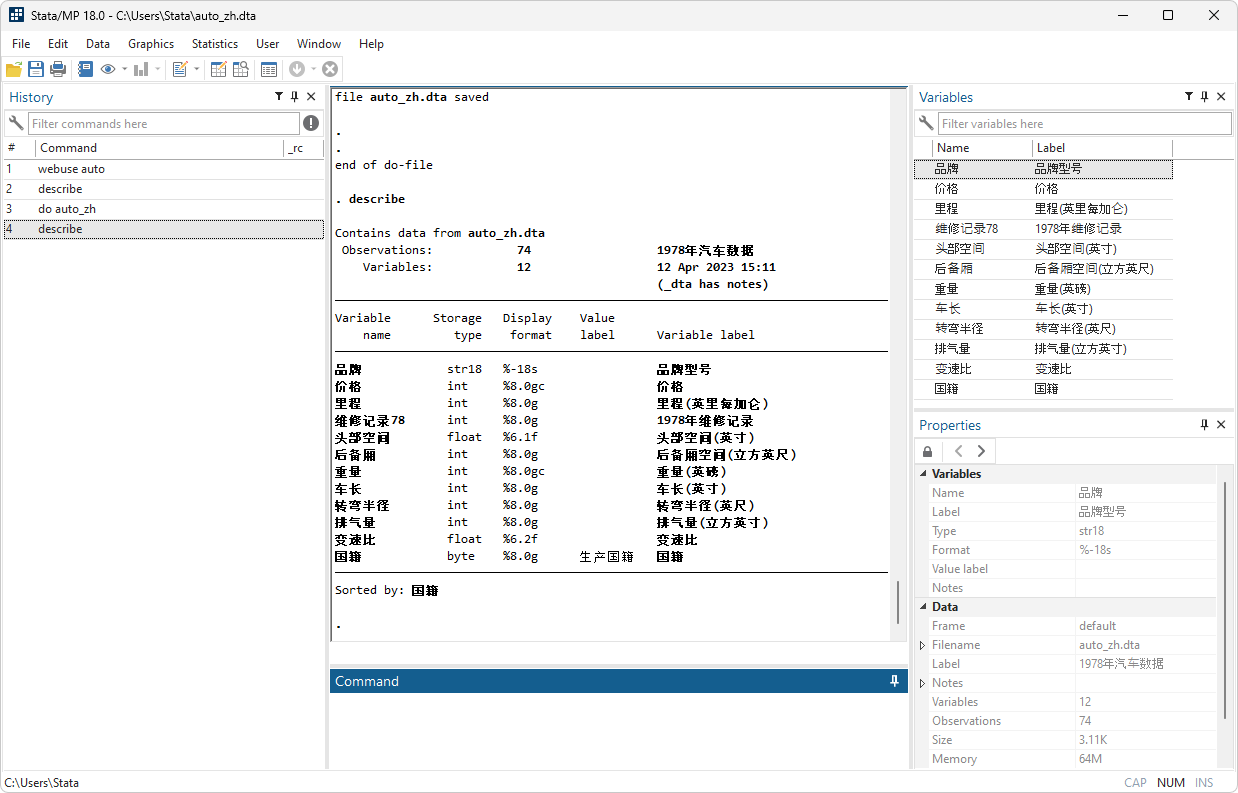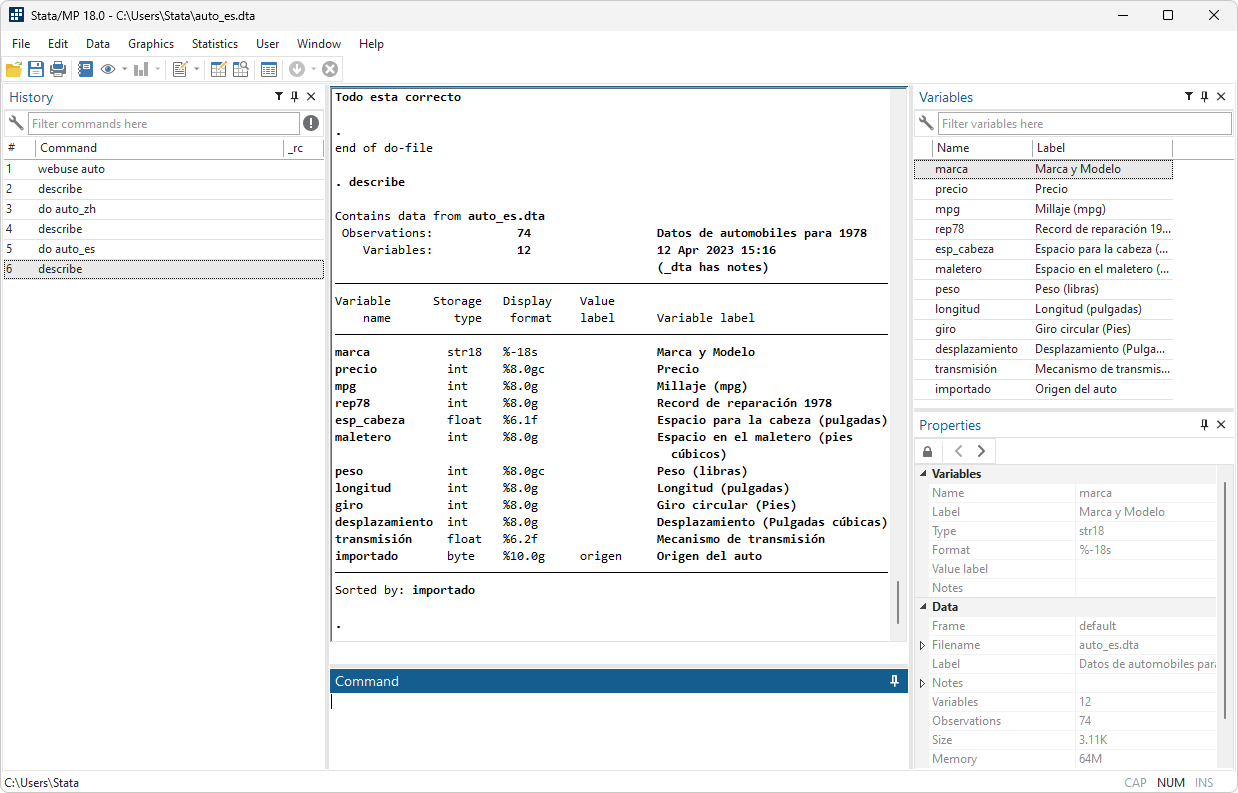Unicode is the modern way that computers encode characters such as the letters in the words you are now reading. Unicode encodes all the world's characters, meaning we can write Hello, Здравствуйте, こんにちは, and a lot more.
Stata supports Unicode, and you can use the full range of characters everywhere. Thus, a dataset created in English might look like this:
The same dataset created in Chinese might look like this:
And the same dataset created in Spanish might look like this:
You may use Unicode in variable names, in labels, and of course in the string variables of your data.
That you can include Unicode in your data is important because data come as they come. Regardless of the language of the data, you can make your output instantly more readable by setting the variable and value labels in the language of your audience. And, if you wish, you can use the full range of Unicode characters for your variable names, notes, and the like. Stata can also convert legacy files from extended ASCII encodings to modern Unicode (UTF-8) encoding.
Unicode literally puts all the world's characters at your fingertips.
Watch Unicode in Stata.
Read more about Unicode support in Stata Data Management Reference Manual; see [D] unicode.
Learn
Free webinars
NetCourses
Classroom and web training
Organizational training
Video tutorials
Third-party courses
Web resources
Teaching with Stata
© Copyright 1996–2026 StataCorp LLC. All rights reserved.
×
We use cookies to ensure that we give you the best experience on our website—to enhance site navigation, to analyze usage, and to assist in our marketing efforts. By continuing to use our site, you consent to the storing of cookies on your device and agree to delivery of content, including web fonts and JavaScript, from third party web services.
Cookie Settings
Last updated: 16 November 2022
StataCorp LLC (StataCorp) strives to provide our users with exceptional products and services. To do so, we must collect personal information from you. This information is necessary to conduct business with our existing and potential customers. We collect and use this information only where we may legally do so. This policy explains what personal information we collect, how we use it, and what rights you have to that information.
These cookies are essential for our website to function and do not store any personally identifiable information. These cookies cannot be disabled.
This website uses cookies to provide you with a better user experience. A cookie is a small piece of data our website stores on a site visitor's hard drive and accesses each time you visit so we can improve your access to our site, better understand how you use our site, and serve you content that may be of interest to you. For instance, we store a cookie when you log in to our shopping cart so that we can maintain your shopping cart should you not complete checkout. These cookies do not directly store your personal information, but they do support the ability to uniquely identify your internet browser and device.
Please note: Clearing your browser cookies at any time will undo preferences saved here. The option selected here will apply only to the device you are currently using.


